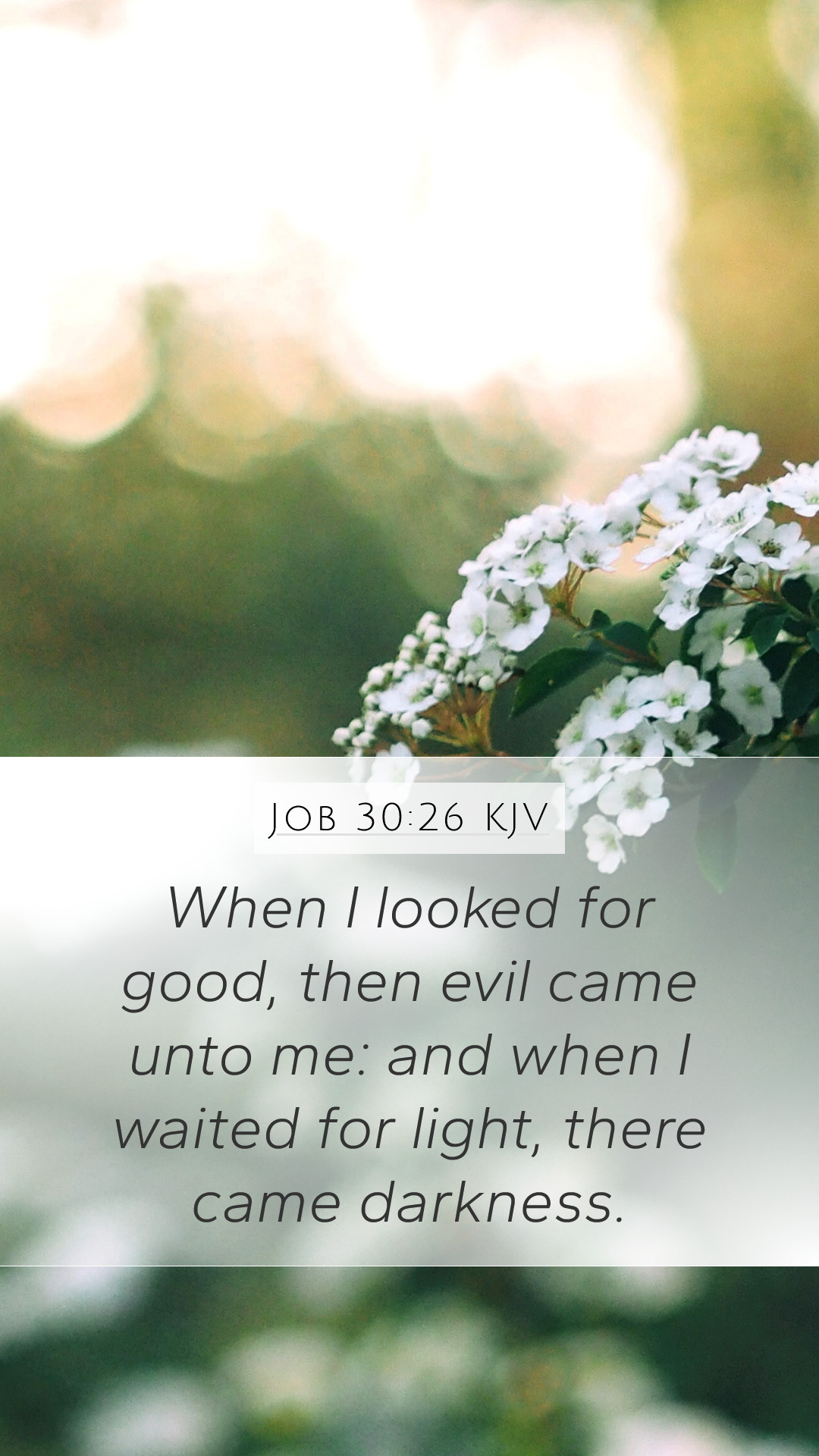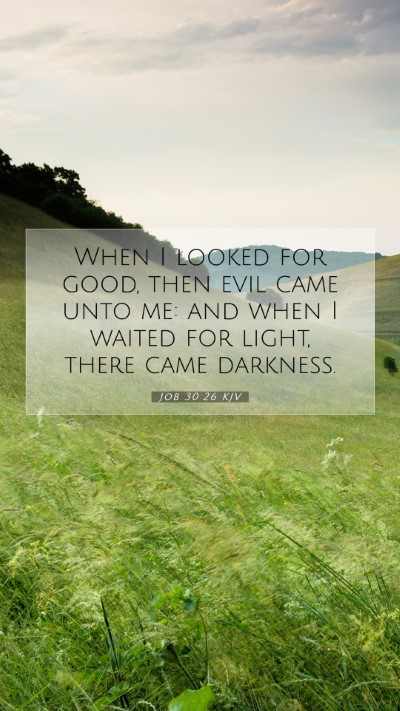Understanding Job 30:26
Job 30:26 states:
"But when I hoped for good, evil came; and when I waited for light, there came darkness."
This verse captures the deep despair and anguish of Job during his time of suffering. Through Bible verse meanings, we journey into Job's heart as he articulates a profound sense of disappointment in God's seeming absence during his trials.
Verse Analysis
- Job's expectations of favorable outcomes contrast starkly with his harsh reality.
- He expresses the paradox of hope being met with despair: a common theme in the human experience.
- The imagery of light and darkness symbolizes clarity versus confusion, hope versus despair.
Biblical Context
Job's story is a rich tapestry of human suffering and divine sovereignty. In his lament, he reflects:
- Matthew Henry notes that Job's cry reveals the depth of his trial and the disappointment when expecting relief.
- Albert Barnes emphasizes the strong feelings of hopelessness that accompany such suffering, showcasing the emotional turmoil faced by believers in crisis.
- Adam Clarke delineates how Job’s expression also serves as a critique of worldly expectations, reminding us that faith can be tested when circumstances contradict our hopes.
Thematic Insights
Drawing insights from these Bible verse commentaries leads us to critical thematic reflections:
- Hope and Despair: The emotional seesaw Job experiences invites readers into a deeper understanding of Scripture.
- Faith Under Trial: Job's experience challenges us to consider how we respond when our expectations of God seem unmet.
- Divine Presence: Even in darkness, God's presence is implied; this encourages seekers to consider Bible study lessons regarding perseverance in faith.
Application in Daily Life
This verse encourages us to explore the application of Bible verses to daily life. When faced with difficulties, it's vital to:
- Recognize the emotional truth captured in Job's lament.
- Seek community support, such as Bible study groups, when experiencing hardship.
- Utilize Bible study tools to gain deeper insights and context.
Cross References
This verse can be related to several others in Scripture that explore similar themes:
- Psalm 30:5 - "for His anger lasts only a moment, but His favor lasts a lifetime; weeping may stay for the night, but rejoicing comes in the morning."
- Lamentations 3:17-20 - Reflects a deep sense of loss and abandonment.
- Ecclesiastes 3:11 - "He has made everything beautiful in its time." - emphasizes the hope that God's timing is beyond our understanding.
Conclusion
In conclusion, Job 30:26 serves as a profound declaration of the human experience of suffering and the complexities of hope. As we delve into this verse, let it inspire a deeper pursuit of understanding through in-depth Bible verse analysis, encouraging ongoing reflection and discourse in our online Bible study activities and personal faith journeys.


